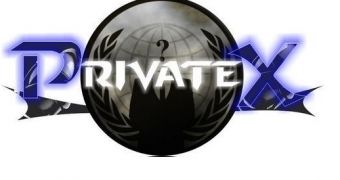The official websites of Philippines’ National Telecommunications Commission (NTC), the Philippine Information Agency, the Food Development Center, and others have been defaced by hacktivists as a form of protest against the newly introduced cybercrime law, the Cybercrime Prevention Act of 2012.
The Anonymous-affiliated hackers – part of a group called PrivateX – have dubbed the operation “Bloody Monday.”
“This domain name associated with GOV.PH has been seized pursuant to an order issued by Anonymous Philippines,” they wrote on the breached sites’ main page.
“A federal grand jury has indicated several individuals and entities allegedly involved in the operation of this website / department / office charging them with the following federal crimes: Conspiracy, Violations of Human Rights, Corruption, Copyright infringement, Money Laundering, PIRACY, Misuse of Devices, Libel, Plagiarism, and Destruction of Freedom of Speech.”
According to ABS-CBNnews, the NTC has turned to the Philippine National Police's Criminal Investigation and Detection Group (CIDG) for help in addressing the issue. The NTC hopes not only to find the culprits, but also to ensure that their website is protected against future attacks.
This is not the first time when online activists protest against the new legislation by defacing websites. At the end of September, Anonymous Philippines defaced seven high-profile websites, including the ones of American Chamber of Commerce in Philippines, Department of Environment in Region 3, and the Metropolitan Waterworks and Sewerage System.
“The Cybercrime Prevention Act of 2012 is the most notorious act ever witnessed in the cyber-history of the Philippines, and the language of the bill is cunningly designed to make you think it only applies to individuals who are deep in cyber-technology and doesn’t apply to everyone,” the hackers wrote on the defaced pages.
“But some part of the bill basically says it can imprison anyone who commits libel either by written message, comments, blogs, or posts in sites such as Facebook, Twitter, or any other comment-spaces or other social media in the Internet,” they added.

 14 DAY TRIAL //
14 DAY TRIAL //